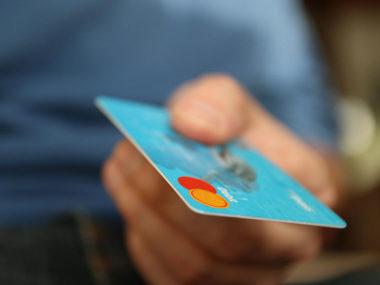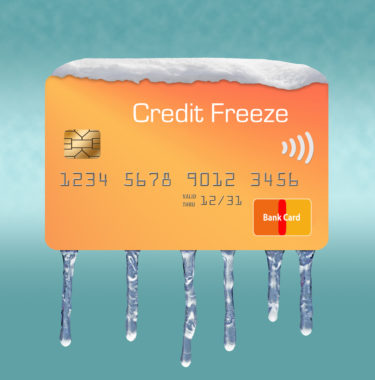In today’s world, not having a checking account makes it virtually impossible to manage your financial life successfully. Beyond not having a safe place for your money, not having a bank account can present challenges when you want to get a credit card, buy a home, or even access cash without shelling out huge fees.
Still, the Federal Deposit Insurance Corporation reports that about 6% of Americans don’t have a checking account. People choose to go “unbanked” for several reasons, one of which is concerns about the effect of a checking account on their credit. Even those who have an account are often concerned about how their account history impacts their credit. Although these concerns aren’t completely unfounded, your banking history doesn’t typically have a direct effect on your credit report or score. It can, however, limit your access to different banking products and your choices in terms of banks.
Table of Contents
The Impacts of Your Checking Accounts on Your Credit
American credit reports provide an overview of your financial history, informing lenders about your payment history, how much you owe, how long you’ve had credit, and other factors about your responsibility and patterns when it comes to borrowing money. What isn’t included on your credit report, though, is information about your bank account.
Credit reports do not include details about your checking or savings accounts, investment accounts, or any accounts where you have not borrowed money from the bank.
Therefore, in the vast majority of cases, checking accounts have no effect on your credit report whatsoever. There are two exceptions, though. First, if you overdraw your account, and fail to make a deposit to return the account to good standing, the account may go to collections. If this happens, the bank or collection agency may opt to report the delinquent account to the credit bureaus.
The second exception is when you have overdraft protection attached to your account in the form of a line of credit. Again, if you draw money from this line of credit and fail to repay it as agreed, it may be reported as a delinquent account on your credit report. Both of these scenarios are easily avoided, however, and will not be an issue when the account is used responsibly. That said, your checking account history can affect your financial life in very real ways.
Understanding ChexSystems Reports
Although banks don’t report your banking history to the credit bureaus, and they don’t check credit reports of customers who wish to open accounts, they do have a dedicated reporting system for evaluating consumers.
ChexSystems is a national consumer credit reporting agency used by banks to report information about customers’ banking habits. Banks typically report overdrawn accounts, fraudulent activity, accounts that are involuntarily closed, unpaid fees, and information about your applications or inquiries for new accounts.
Although every bank has its own policies in regards to what is reported and how information affects your ability to open a new account, in general, negative information stays on the report for up to five years and may prevent you from opening a new bank account. You can dispute inaccurate information. The Fair Credit Reporting Act allows consumers to request a free copy of their report directly from ChexSystems once a year. You may also request a copy if you are denied a bank account due to the information contained in the consumer report.
Does Your Checking Account History Impact Your Credit?
As a general rule, your checking account history does not impact your credit, although how you use your money can be indicative of patterns that may lead to poor credit; for example, repeated overdrafts might be a sign that you are spending beyond your means.
Although your checking account history doesn’t affect your credit, it does affect some banks’ willingness to do business with you. When you apply for a new account, they will review your ChexSystems report for red flags that may indicate future problems. In other words, occasional overdrafts aren’t likely to be an issue, but a consistent pattern of bouncing checks, leaving your account overdrawn, and other problems could give the bank reason to decline your application.
Does Opening a Checking Account Affect Your Credit?
Opening a checking account may not affect your credit, but it can affect your ability to open future accounts. Just like opening many credit cards can lower your credit score, opening multiple checking accounts is often a red flag to banks; this is usually a sign that you have opened accounts merely for the new account bonuses, and you aren’t likely to be a good customer.
That doesn’t mean you shouldn’t have more than one bank account, but be cognizant of how multiple accounts may impact your ChexSystems history and use them responsibly.
Ultimately, a poor history as reflected in your ChexSystems report can affect your financial options. When banks decline to open an account for you, you’ll be forced to turn to less attractive options, including second-chance accounts that may charge higher fees and have fewer features.
How to Make the Most of Checking Accounts
The best way to maintain a positive ChexSystems report and avoid banking issues is to use your checking account responsibly. Avoiding overdrafts, meeting minimum balance requirements, and adhering to account policies (for example, not exceeding the number of allowed transactions each month) can keep your account in good standing.
Find the Right Checking Account for You
Managing your checking account responsibly starts with choosing the right bank. Don’t choose a bank simply based on their proximity to your home, school, or office, but compare options to find the bank that works best for your needs. Some of the points to consider include:
- Available account options, including checking, money market, savings, and investment accounts. Some banks offer discounted or premium accounts for customers who meet specific requirements, such as age.
- Fees: Compare bank charges, and look for a bank with no/low fees or options for waiving them.
- Locations: Access to branch locations and ATMs when you need them.
- Mobile and online banking services: How robust is the bank’s mobile app?
- Interest: Does the bank pay interest on your checking account? How much?
- Bonuses: Although you shouldn’t “bank hop” to collect bonuses, choosing a bank with a generous signup bonus can pad your balance.
How to Qualify for a Premium Account
Some banks offer premium checking accounts. These accounts offer an array of features tailored to their best customers, including higher interest rates and fee waivers or reimbursements. Getting one of these accounts can both help you earn more money and spend less.
These accounts typically require you to meet a significant balance threshold (although combining different accounts can make that easier) and may have higher monthly fees attached if you don’t. Still, good money management can help you qualify for one of these accounts. To improve your chances of qualifying:
- Make saving a habit: Automatically deposit a portion of your salary into savings every week to grow your balance.
- Establish a budget: Knowing where your money goes can help you live within your means and spend less than you earn.
- Pay off debt: Focus on reducing your debt. The less you owe, the more you can put toward savings, and the better your credit.
- Monitor your accounts: Don’t allow errors or fraud to affect your finances. Stay on top of your accounts and address any problems right away.
- Choose the right accounts: A checking account with a generous signup bonus and/or interest rate can help you grow your money faster.
Image Source: https://depositphotos.com/




